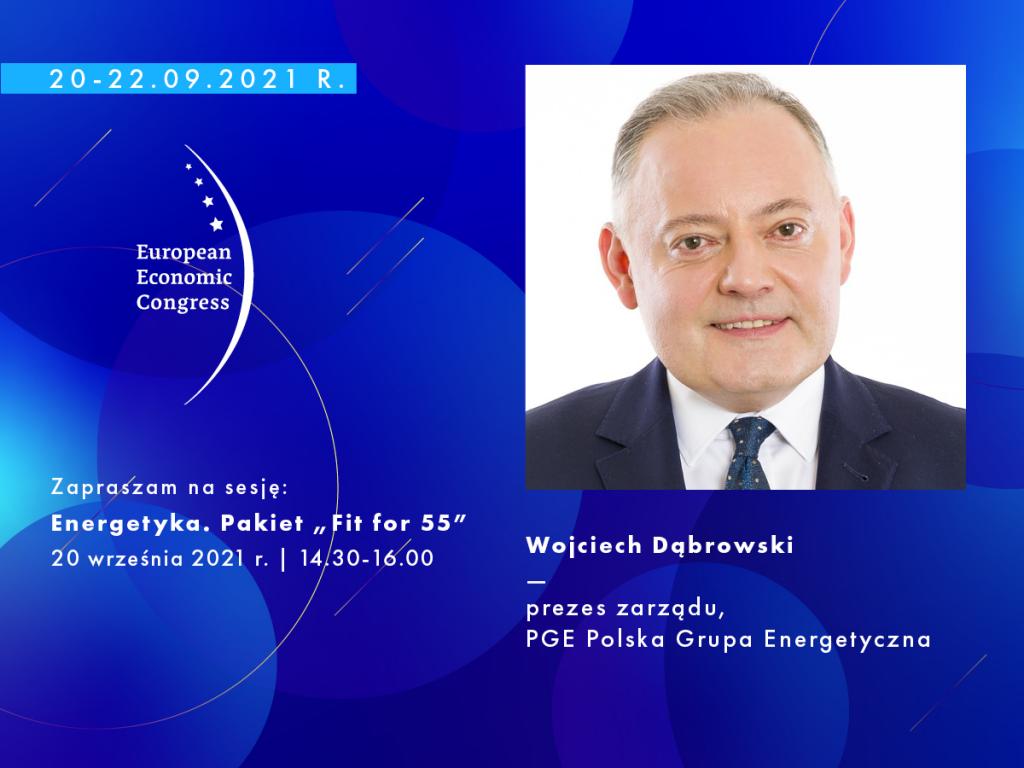The costs of the energy transition, including primarily its social consequences, were one of the main topics of the discussion organised as part of the European Economic Congress by the Polish Electricity Association (PKEE). Representatives of the government, the Commission, the European Parliament and companies from the energy sector also responded to the question whether the package sufficiently takes into account the specific circumstances of Member States and fair burden sharing.
The meeting was inaugurated by Energy Commissioner Kadri Simson, who set out the European Commission's position:
- Fit for 55 brings climate ambition into legal reality and confirms that emissions reductions of at least 55% by 2030 are possible. However, this transition must be done in a fair and sustainable way.
Disparities in EU countries
The Minister for Climate and Environment, Michał Kurtyka, emphasised that the Polish government was analysing in detail the provisions of the package, among which there were those that responded to the postulates of our country submitted to the European Commission, as well as those that raised doubts and required an in-depth discussion: - Such solutions without the introduction of appropriate safety mechanisms may hit the poorest social groups. Poland will not agree to any solution that will be at the expense of the weakest. For many years we have been consistently stressing that climate transformation must be fair and must not worsen economic conditions in specific regions or social groups. Minister Michał Kurtyka said.
MEP, Vice-Chairman of the Committee on Industry, Research and Energy, Zdzisław Krasnodębski presented the perspective of the European Parliament: - Today, the framework for social and economic development is set in Brussels. We need an alliance of different forces and a search for compromises in the European arena. We need to anticipate the next moves, take action and not remain under the illusion that we will stop the transformation. We need more strategic thinking. he concluded.
The professor also stressed that the sums allocated for supporting the transformation are disproportionate to the estimated costs of necessary changes in the economies of particular countries.
Trends and challenges of the energy transition in Poland
Concerns about the impact of the pace of energy transformation arise both in the developed economies of the European Union and in those where the scale of the challenge is determined by the significant share of coal in the energy mix. Wojciech Dąbrowski, President of the Management Board of PGE Polska Grupa Energetyczna SA and Chairman of the PKEE Management Board, drew attention to the potential expansion of energy poverty as a consequence of the failure to adapt regulations to the specific nature of EU countries: - Increasing the reduction target is a wildly ambitious plan. We must act carefully to ensure that this plan is not counterproductive. After all, we must not end up increasing the scale of energy poverty. – stressed Dąbrowski.
The President of the Management Board of PGE also highlighted the important role of gas in the energy transformation: - From Poland's perspective, gas is an important transition fuel laying the foundation for Poland's energy transition, the costs of which cannot be passed on to the public.
The next speaker, Paweł Szczeszek, President of the Management Board of Enea SA, pointed to the growing pressure and need for unprecedented changes in the Polish energy sector. The energy industry has never been under such pressure to change. We must respect commitments, but the pace of change has never been so fast. We are building a new green energy system. However, without external financial support we will not rise to this challenge.
In a similar tone spoke Artur Michałowski, acting President of the Management Board of TAURON Polska Energia SA, who spoke about the place of Poland in comparison to other European Union countries in the context of the whole ongoing process: -The transformation must be safe for the society and for our employees. We bet on TAURON's Green Turn and renewable energy sources but we start from a different level than the old EU countries. Changes in Poland require more time.
Dominik Wadecki, Vice-President of the Management Board of Energa SA of the ORLEN Group, also raised the issue of the role of gas in Poland's energy transformation: - There is no alternative to gas if we talk about the energy transformation in Poland. This fuel will have to function at the base of our system. That is why after the ongoing consultations of the Fit for 55 package we would expect it to guarantee the economics of gas power plants in the long term.
At the end of the discussion, all panellists stressed, in formulating the sector's postulates to the European Commission, that the key elements on the road to fair energy transformation should be the reform of the emissions trading scheme (ETS) and a guarantee that the EU will maintain its ability to support gas projects.

